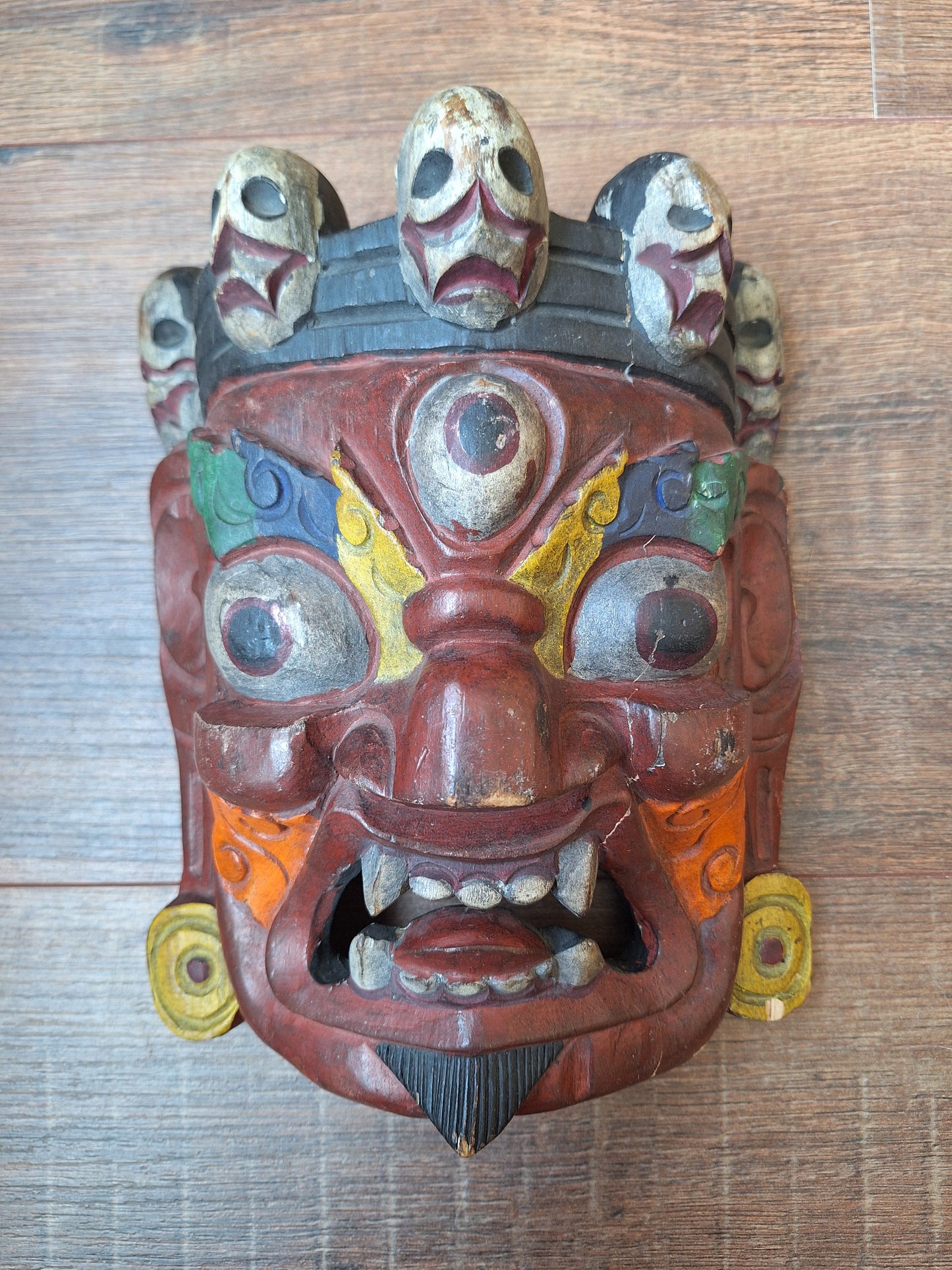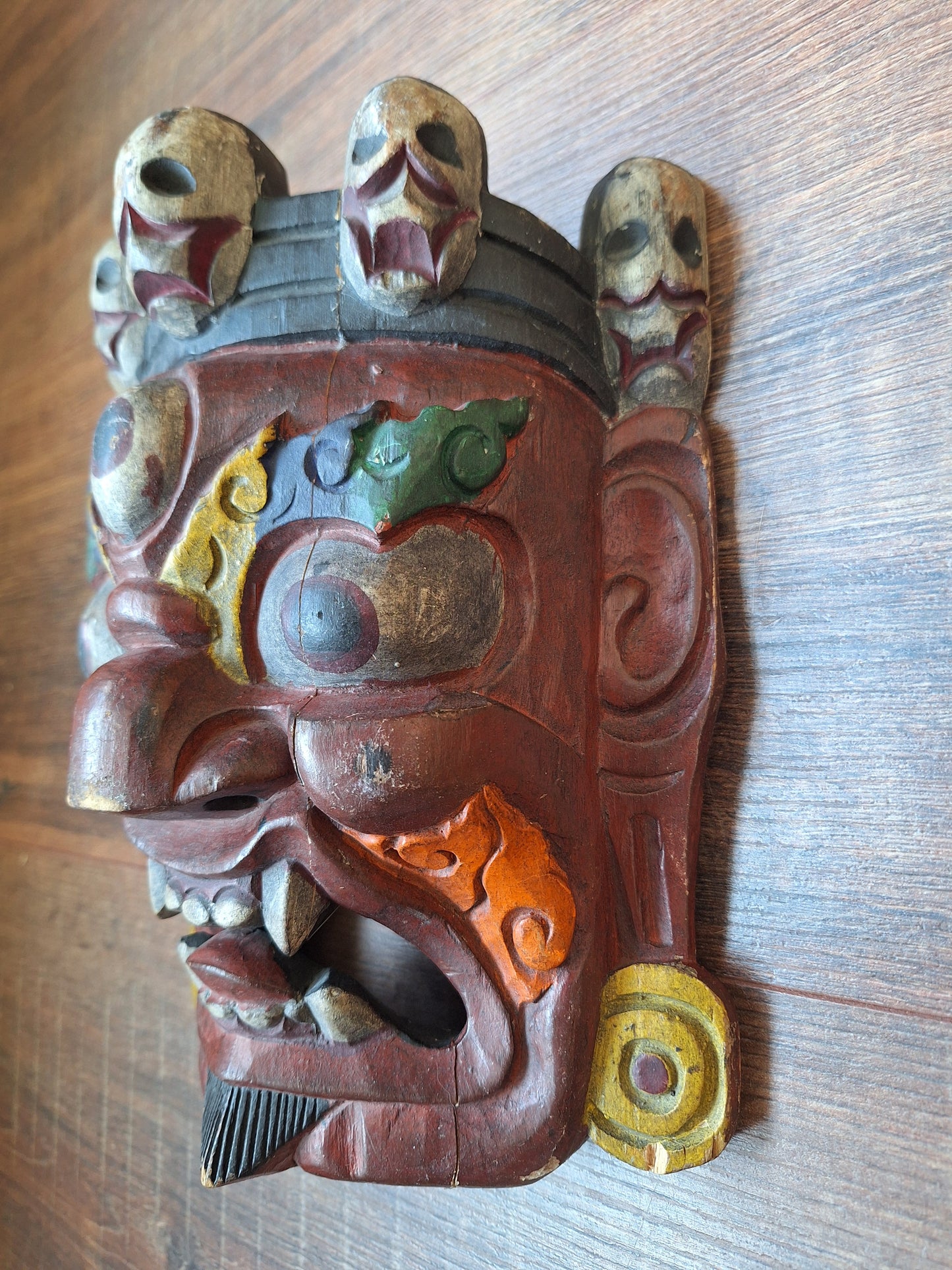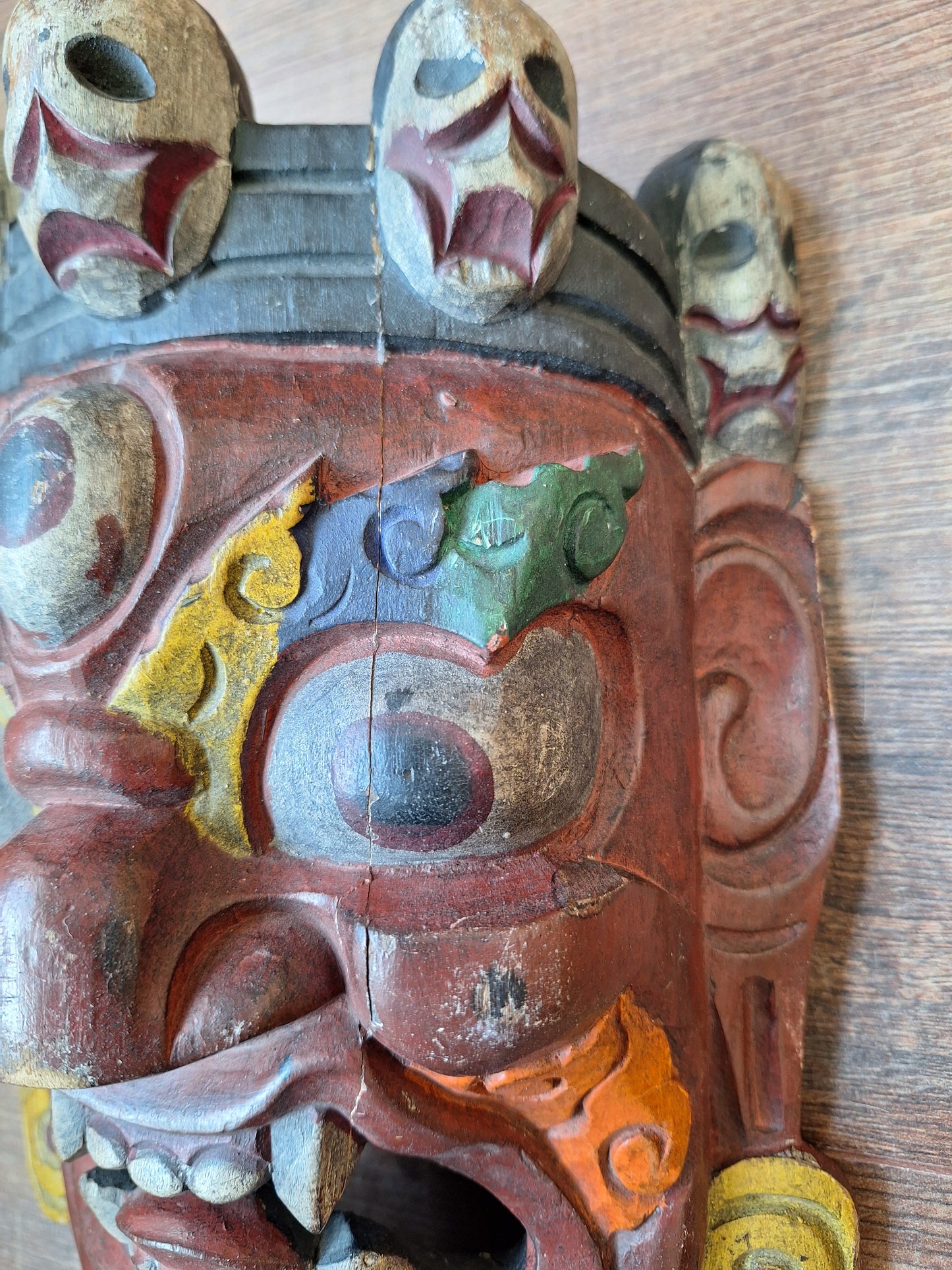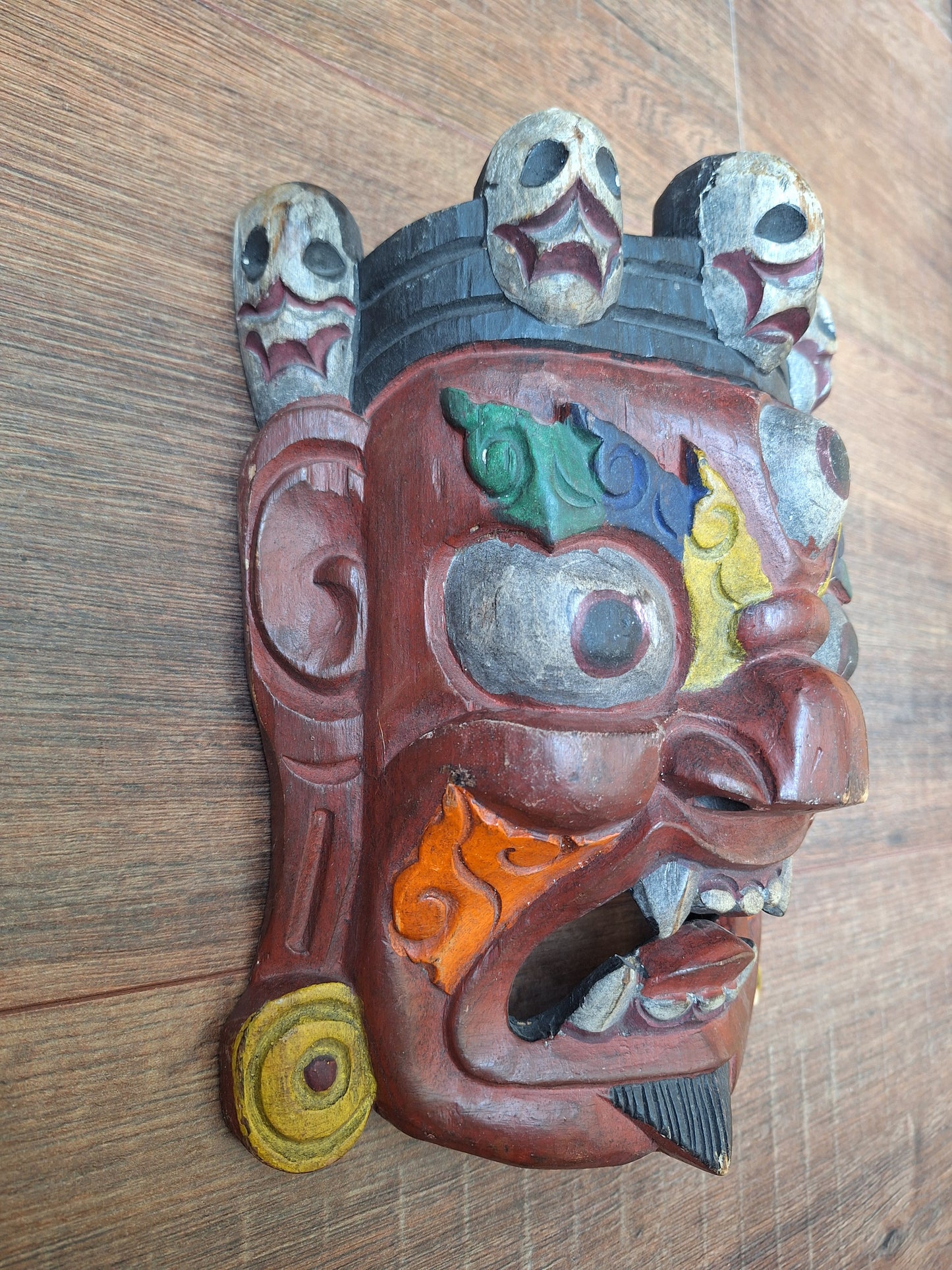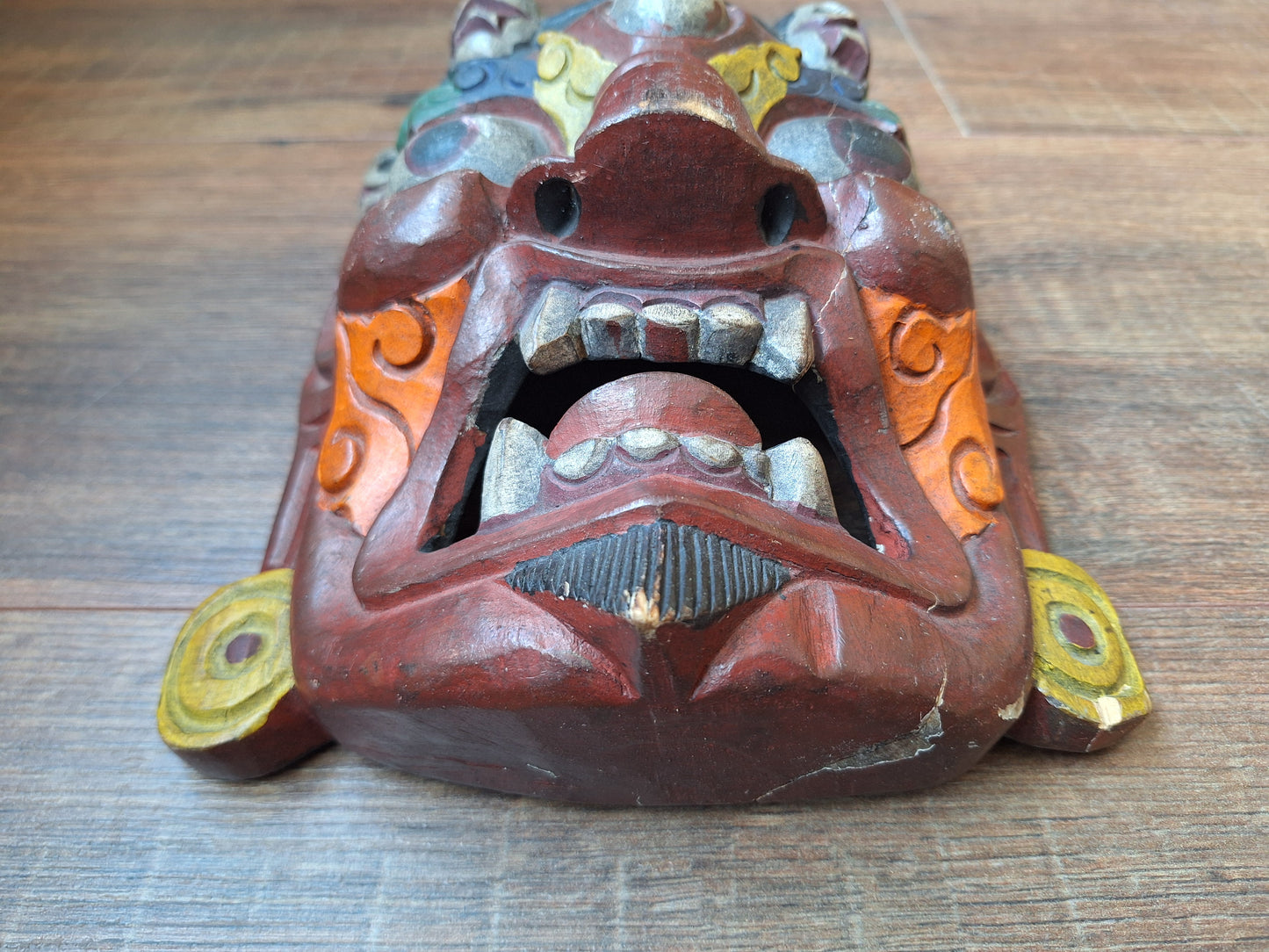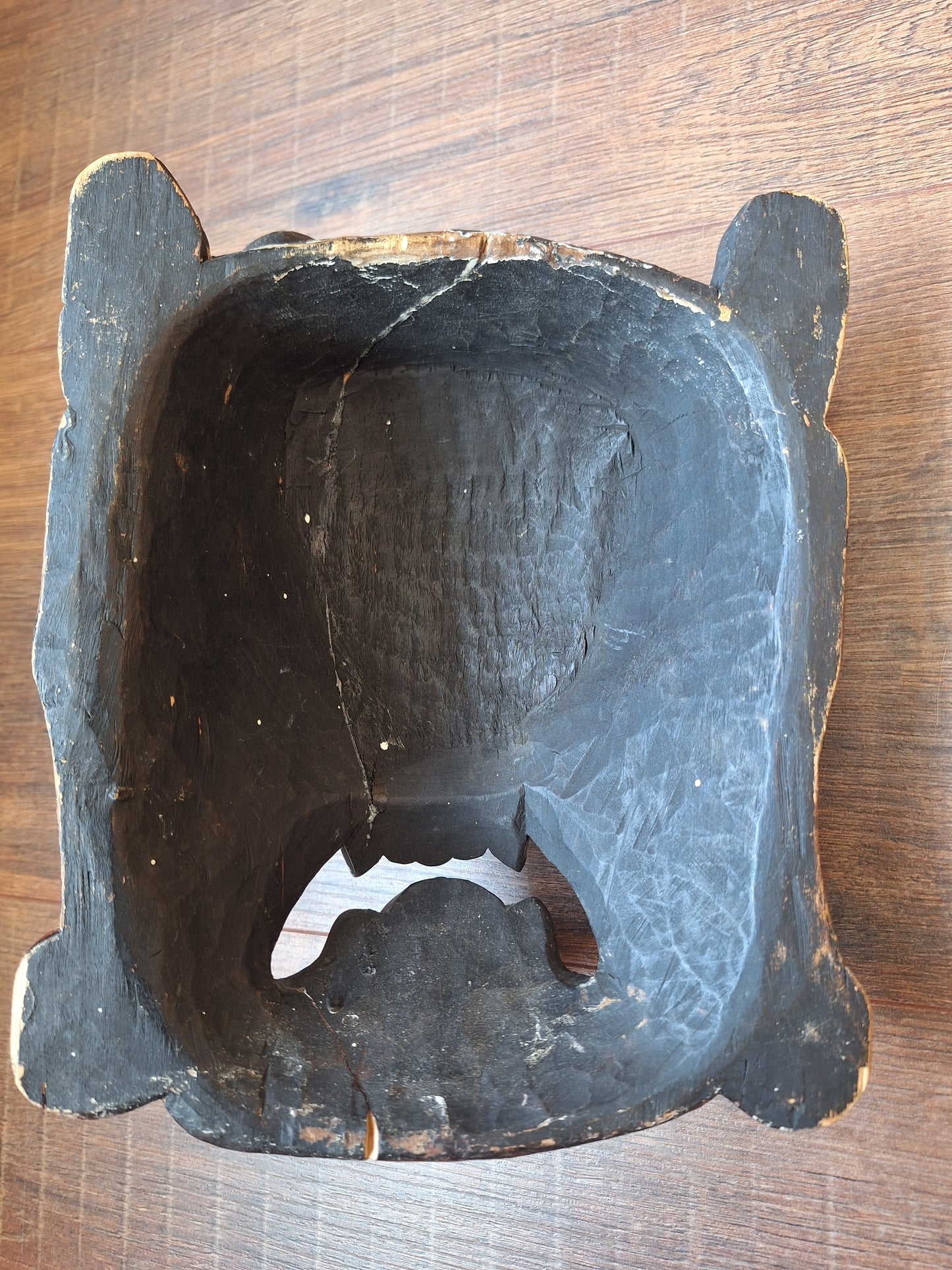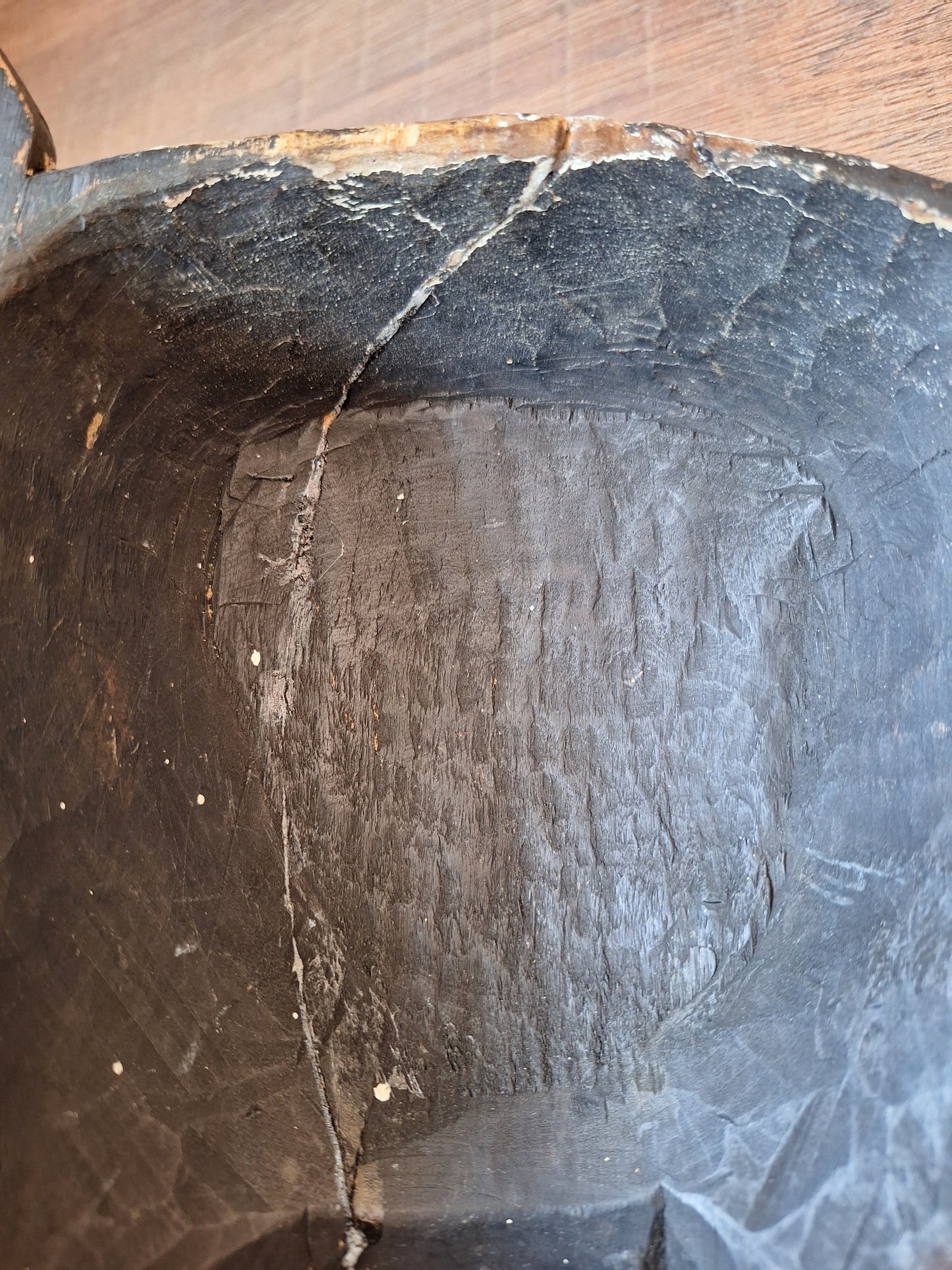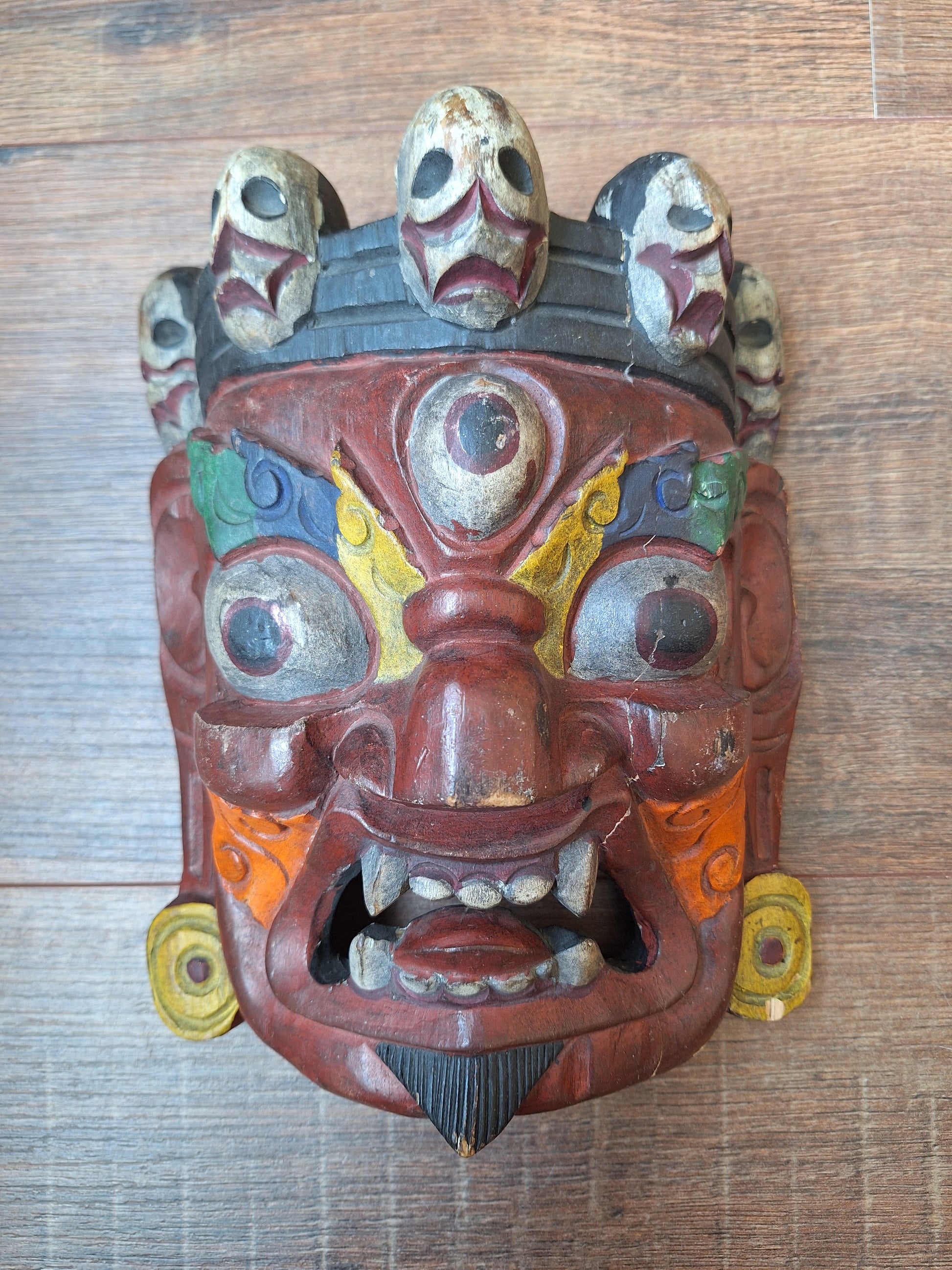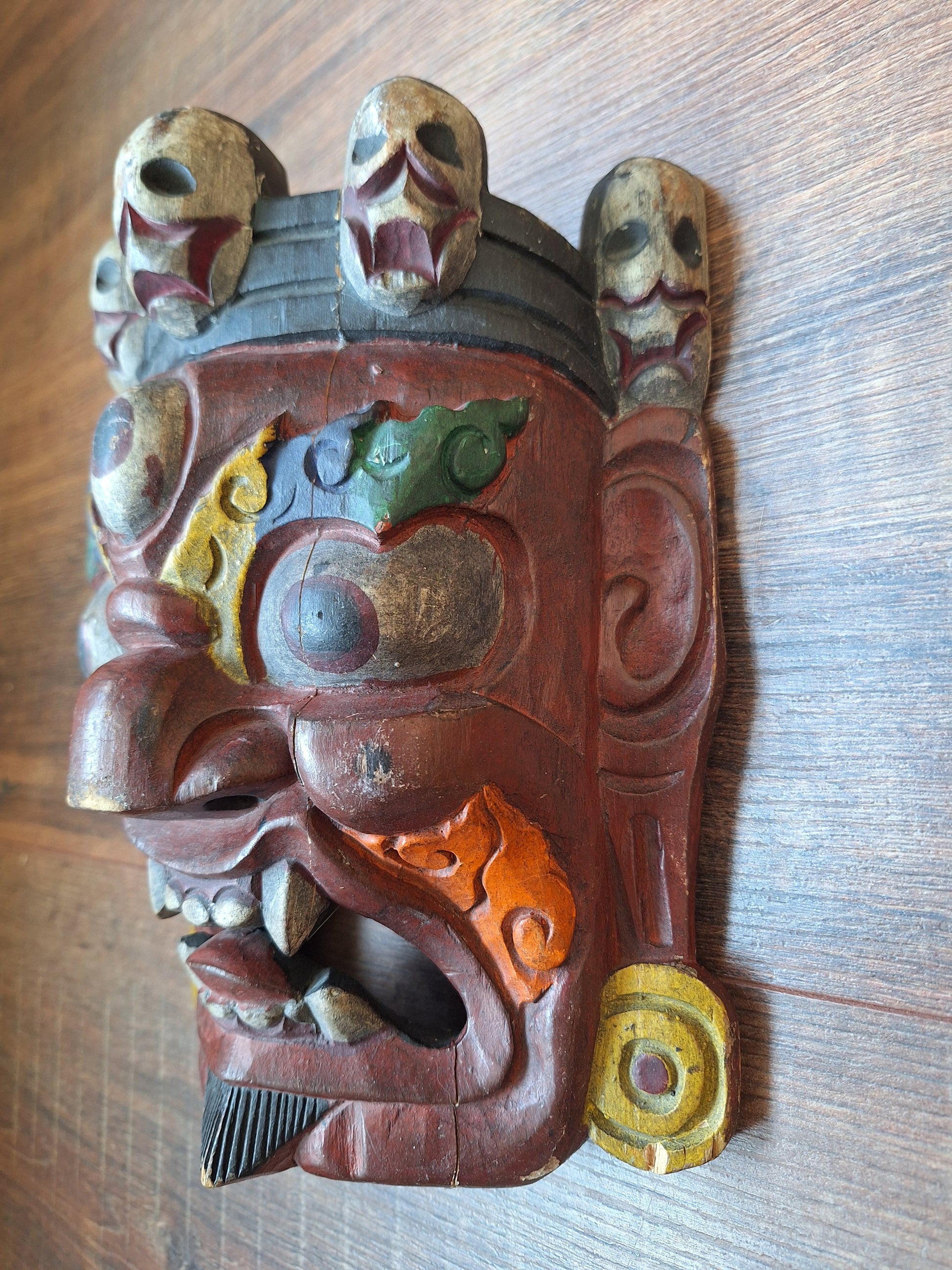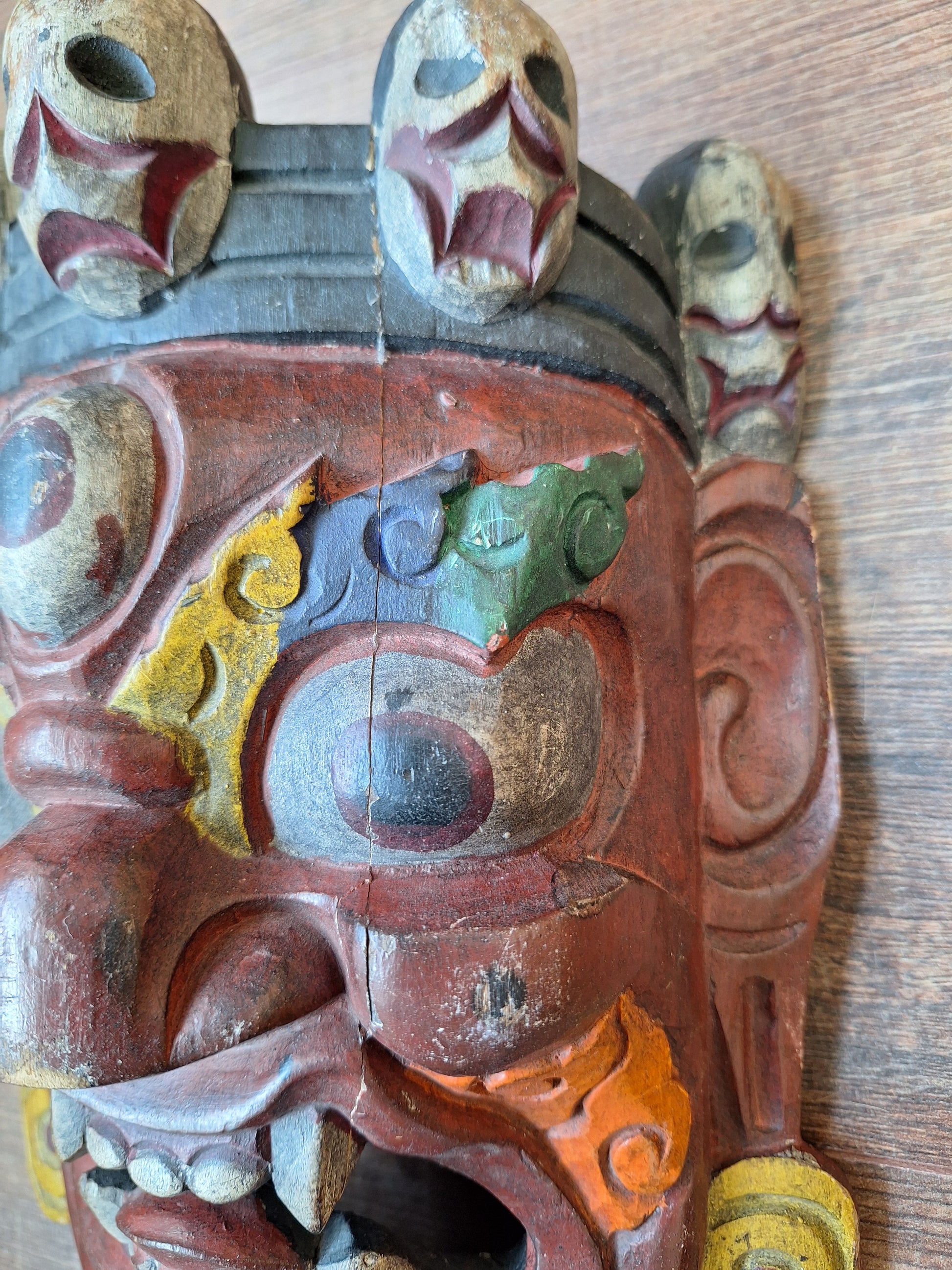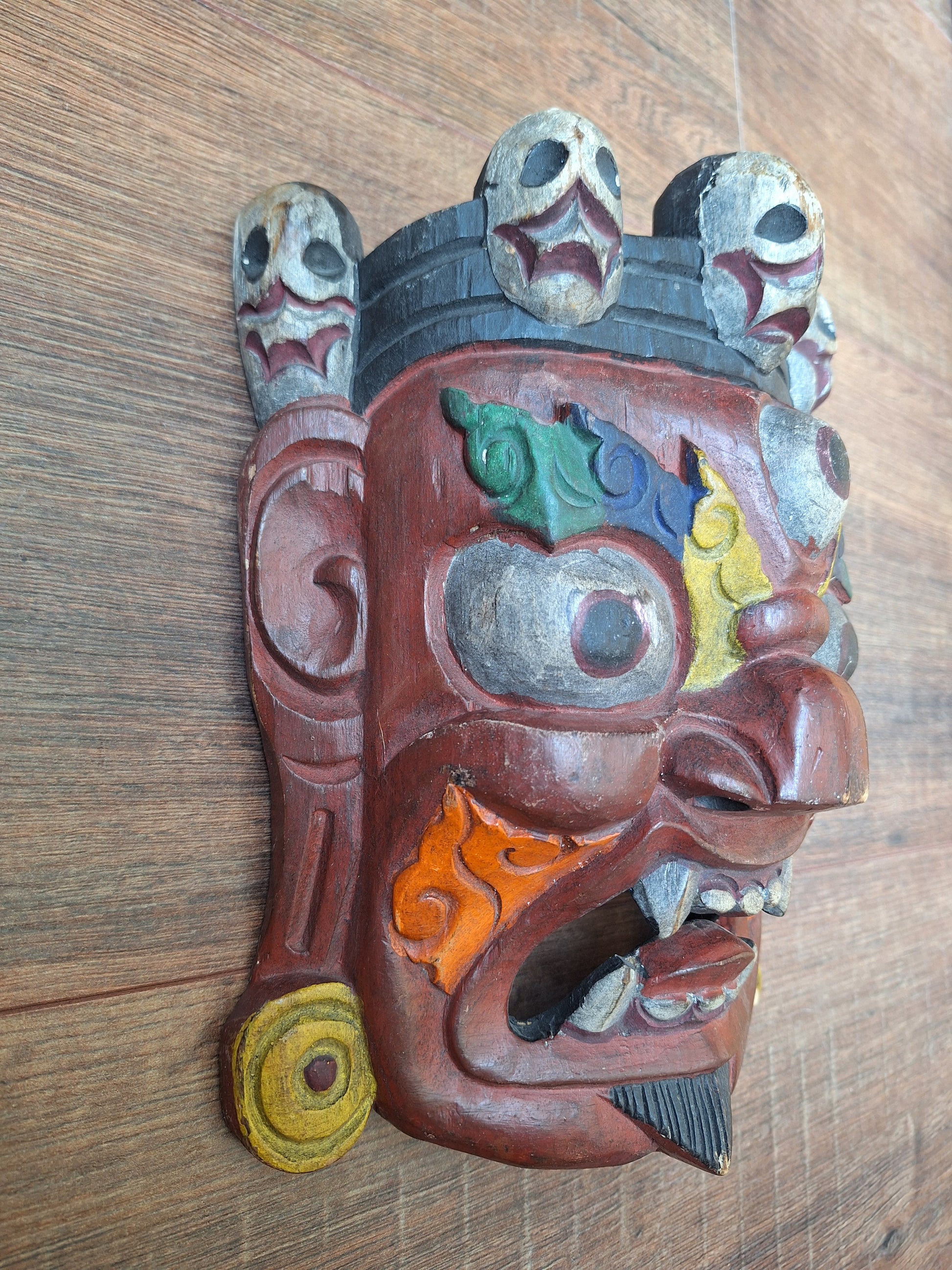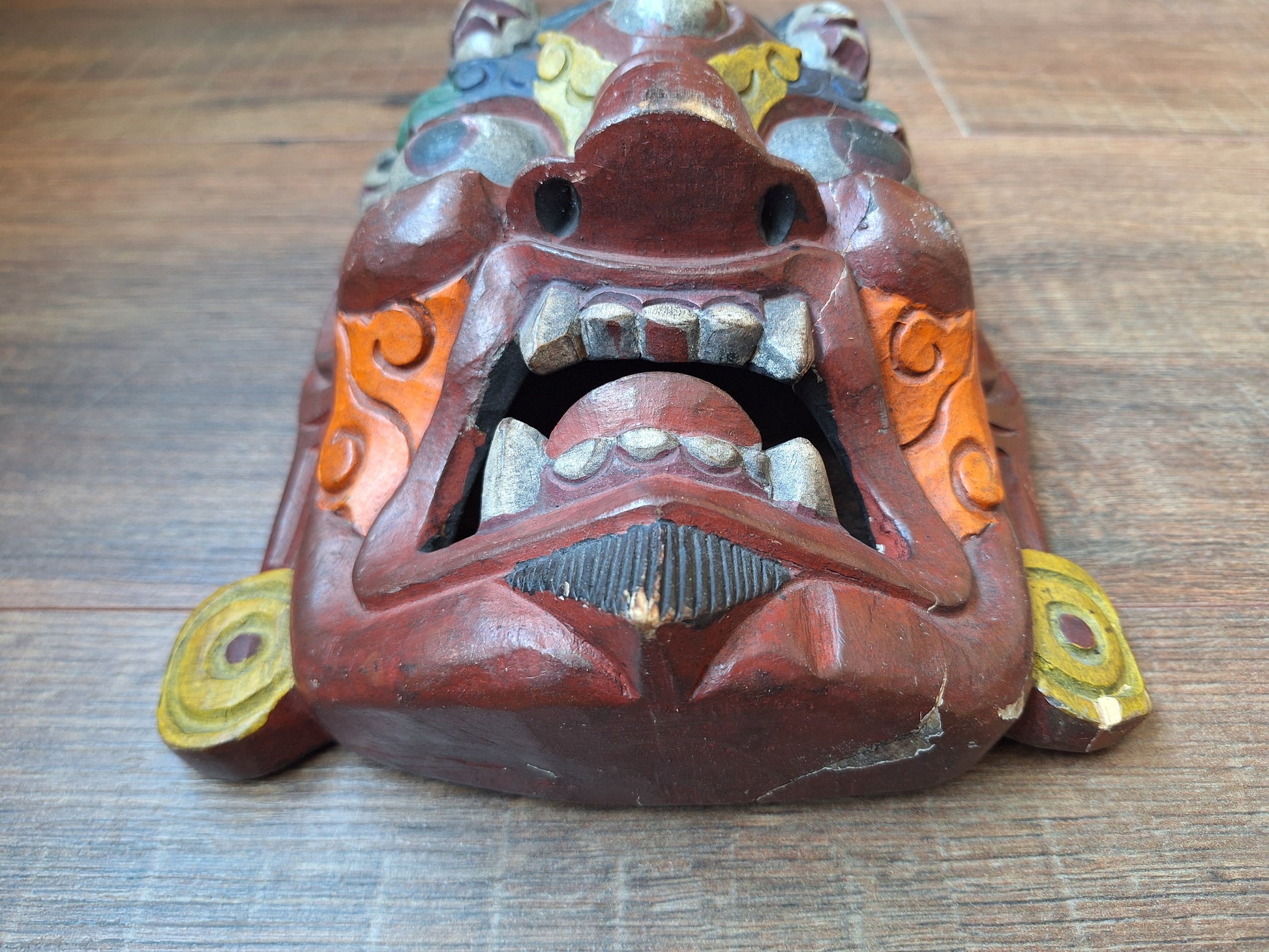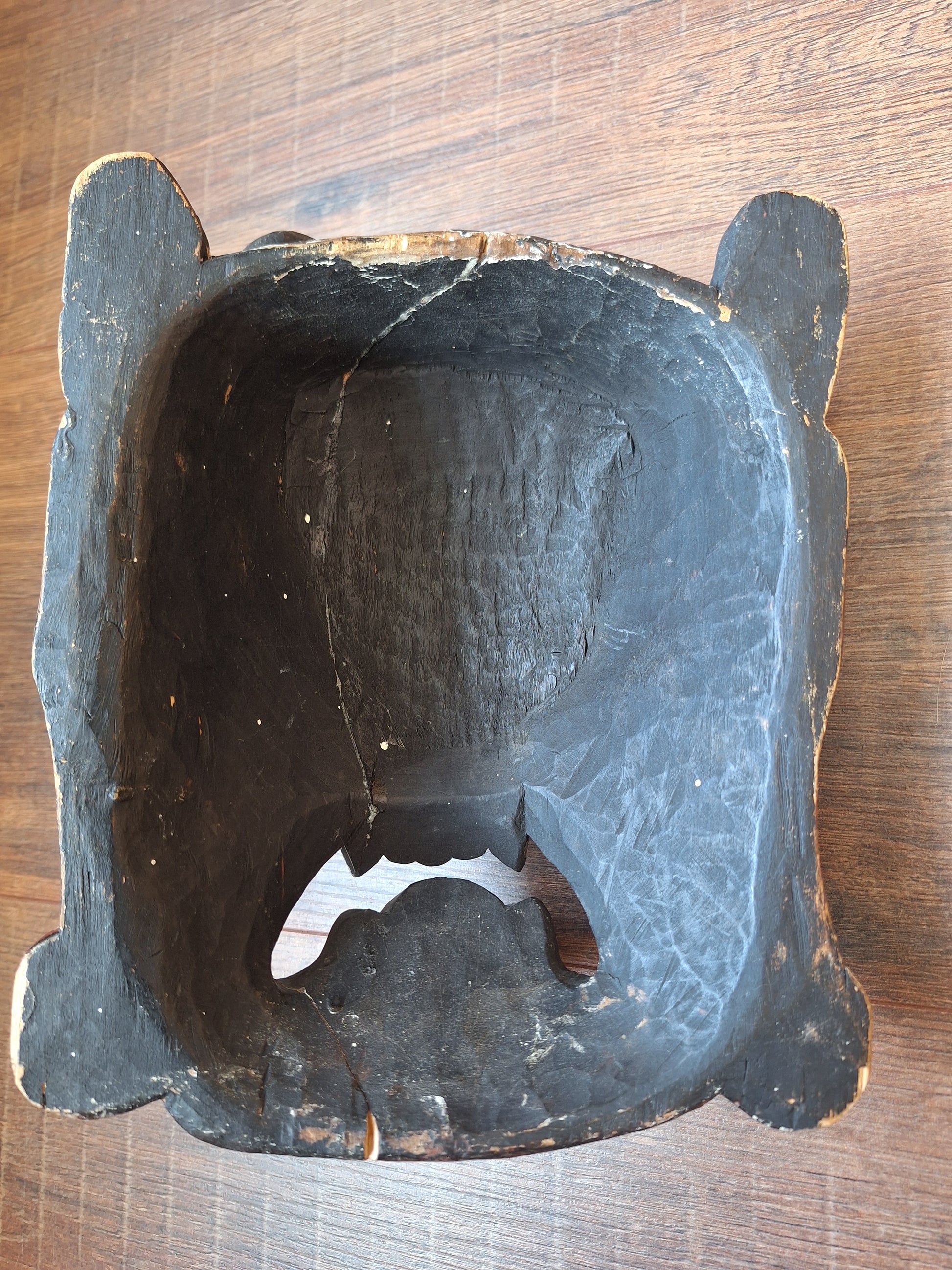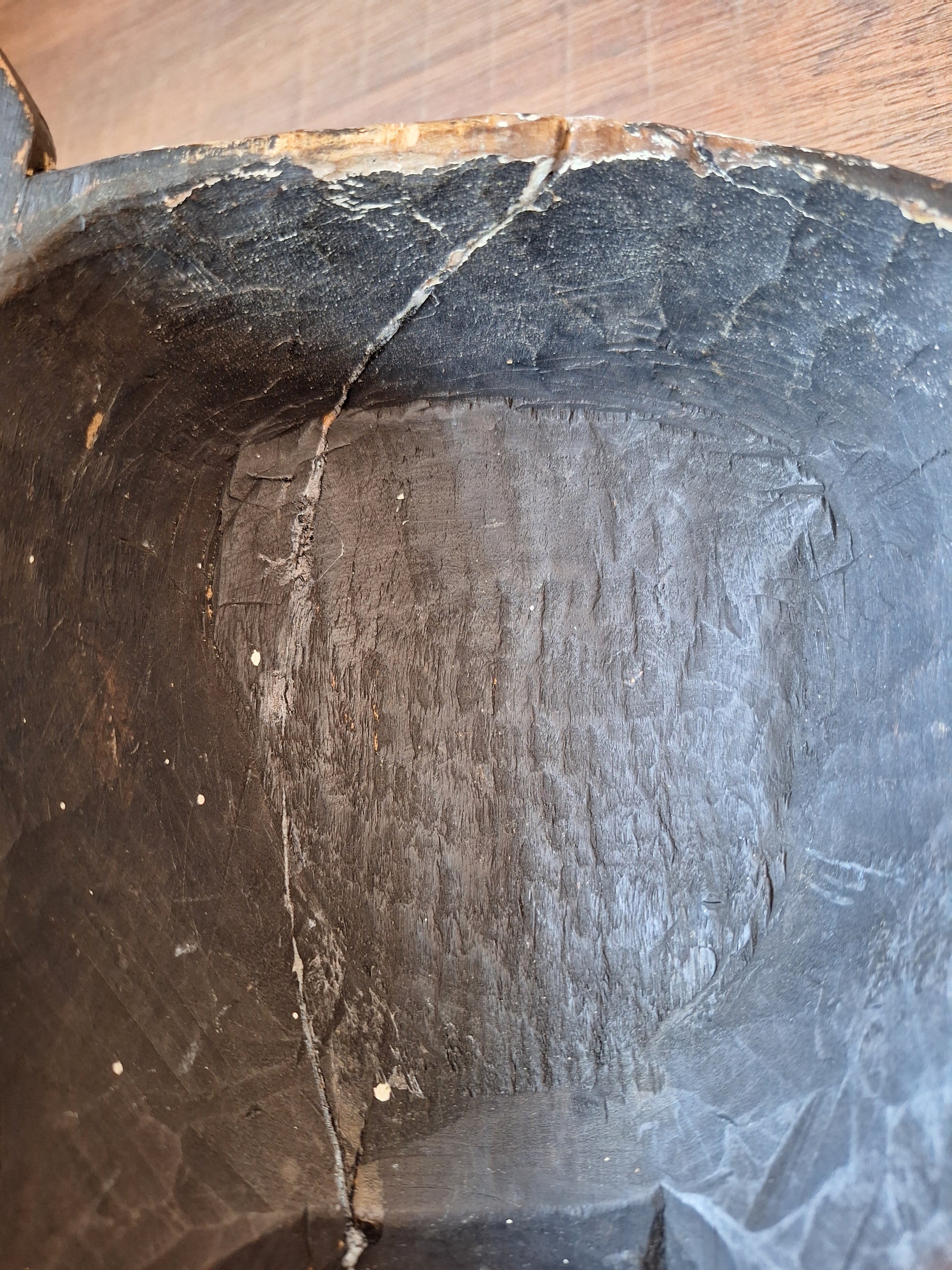Seawolf Shop
Vintage wooden Mahakala mask #9, B-quality
Vintage wooden Mahakala mask #9, B-quality
Couldn't load pickup availability
Share
Mahakala is a deity known in Hinduism and Buddhism. He is often depicted as a fierce, terrifying creature, embodying the wrathful dynamics of deities that also have a peaceful manifestation.
In Tibetan Buddhism, Mahakala is a wrathful emanation of different Buddha’s such as Amitabha and bodhisattva’s such as Avalokiteshvara, a boddhisattva representing the embodiment of universal compassion, who realized his peaceful methods were too mild to subdue the degenerate beings and thus manifested in a wrathful form to accomplish his compassionate intentions.
In Tibetan buddhism Mahakala is seen as a powerful protector of the dharma, which is one of the reasons why his depiction often can be found at the entrance of temples and monasteries.
In Hinduism, Mahakala is seen as a fierce manifestation of the supreme deity Shiva and the consort of the great goddess Mahakali. Here his name can also be found as ‘Mahakala Bhairava’, ‘Kala Bhairava’ or simply ‘Bhairav’.
The name ‘Mahakala’ consists of two Sanskrit words; ‘Maha’ meaning ‘great’ and ‘kala’ meaning ‘time’ or ‘death’. Mahakala can thus be seen as a personified form of Time itself; he is the ultimate destructive power, not bound or regulated by anything or anyone else and he eventually comes for everyone without distinction.
Iconography and symbolism of Mahakala may vary a bit between the different traditions of Buddhism and Hinduism, tho also depictions of him can be found interchangeable.
Symbolism that can often be found in depictions of Mahakala is for example; a third eye, representing clear, true vision and insights, not clouded by the distractions and illusions of the human mind and ego. And a crown with five skulls, representing the five 'poisonous delusions': anger, desire, ignorance, jealousy, and pride. And Mahakala is often depicted in black; the total absence of color, in which all colors just disappear, symbolizing the ultimate, absolute truth and his all-embracing, all-encompassing nature.
Also in traditional shamanism, such as the lineage of Spirit of Wolf, depictions of Mahakala (and other wrathful deities) can be found. Here they are also connected with Erlik Han, lord of the Underworld, and as such used in especially black shamanic work.
This wooden mask comes from Nepal. Sizes are approximately; 23 centimeters high and 20 centimeters wide. Please note that this mask has been broken at one point in its life and glued back together. On the pictures you can clearly see the fracture line going from top to bottom. For this reason the price for this mask is lower than usual. Please note: it might be better to not use this one as an active spirit house anymore (it could be considered very disrespectful to offer a spirit a damaged home). But of course it could still be very well used for decorational purposes.
